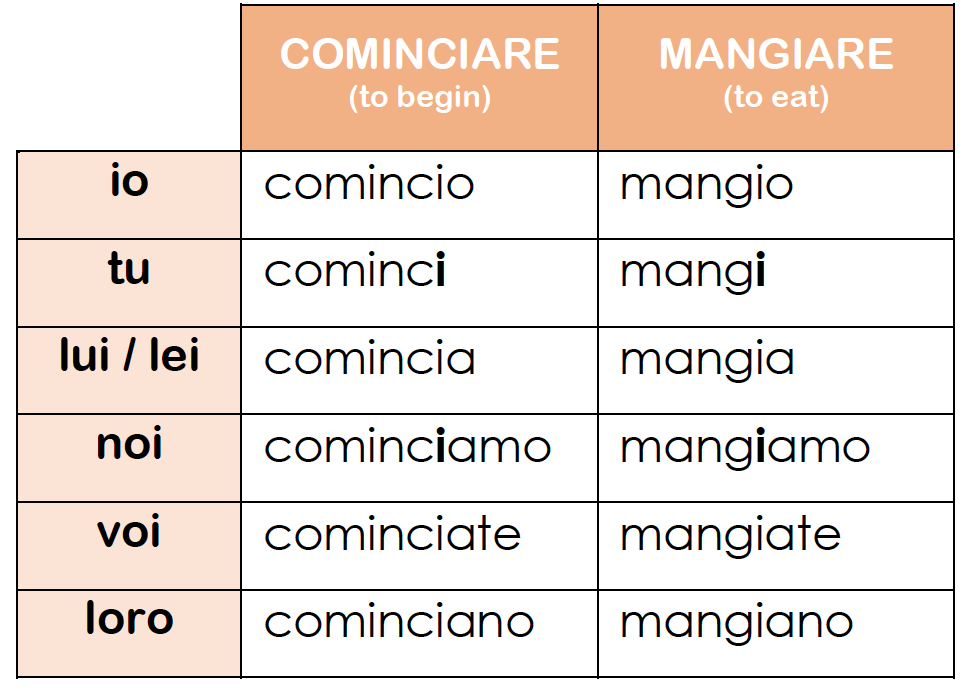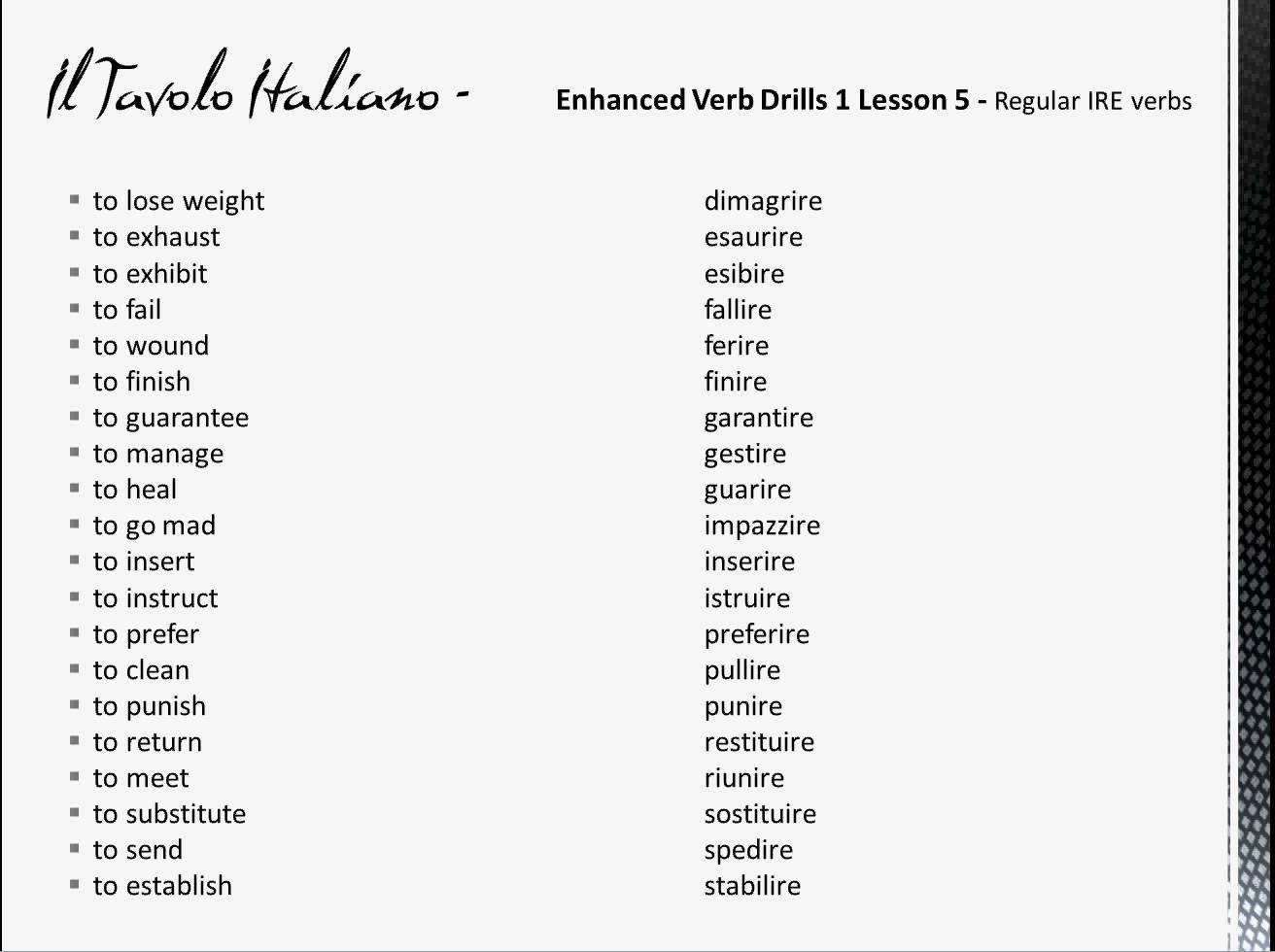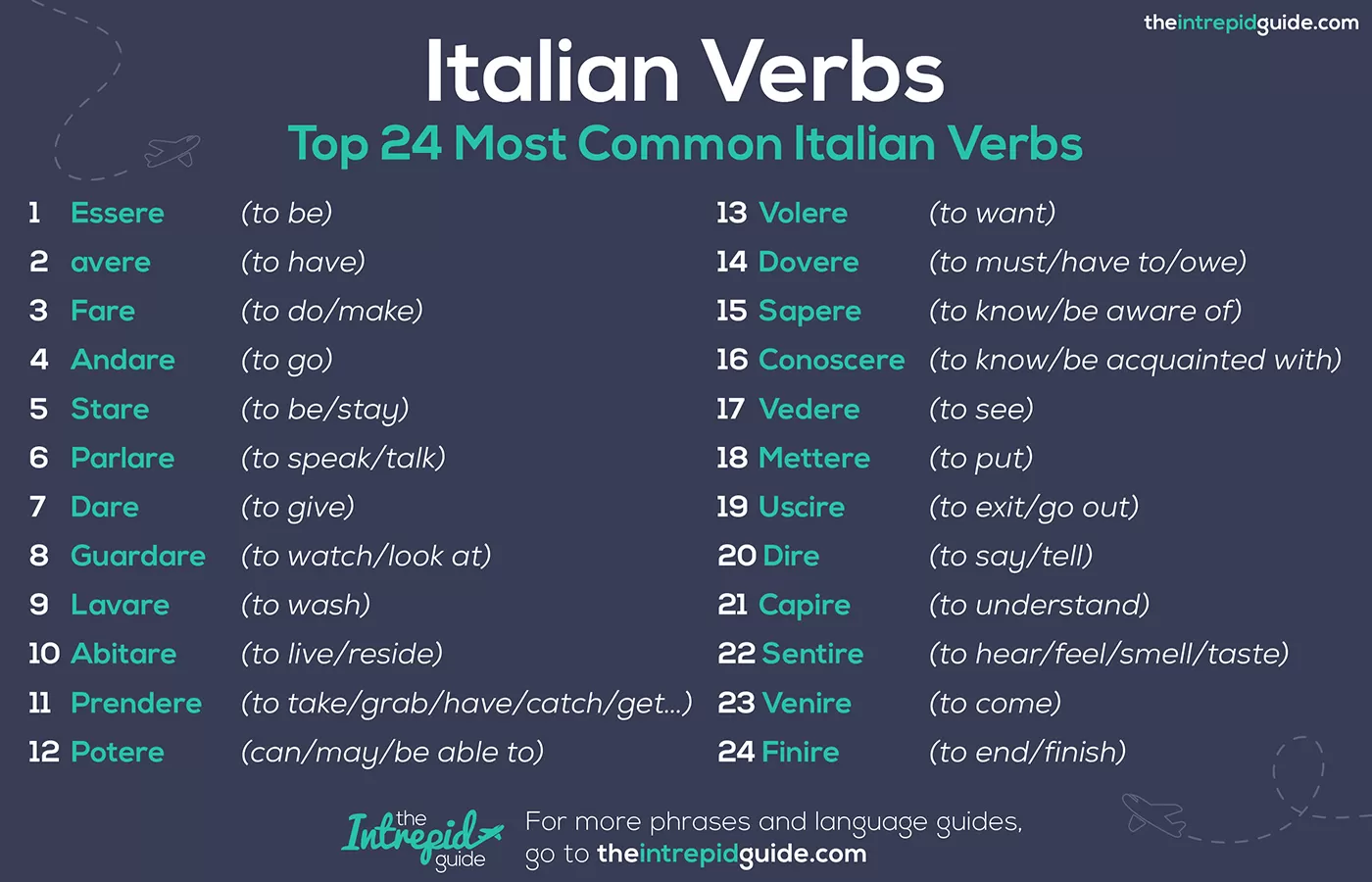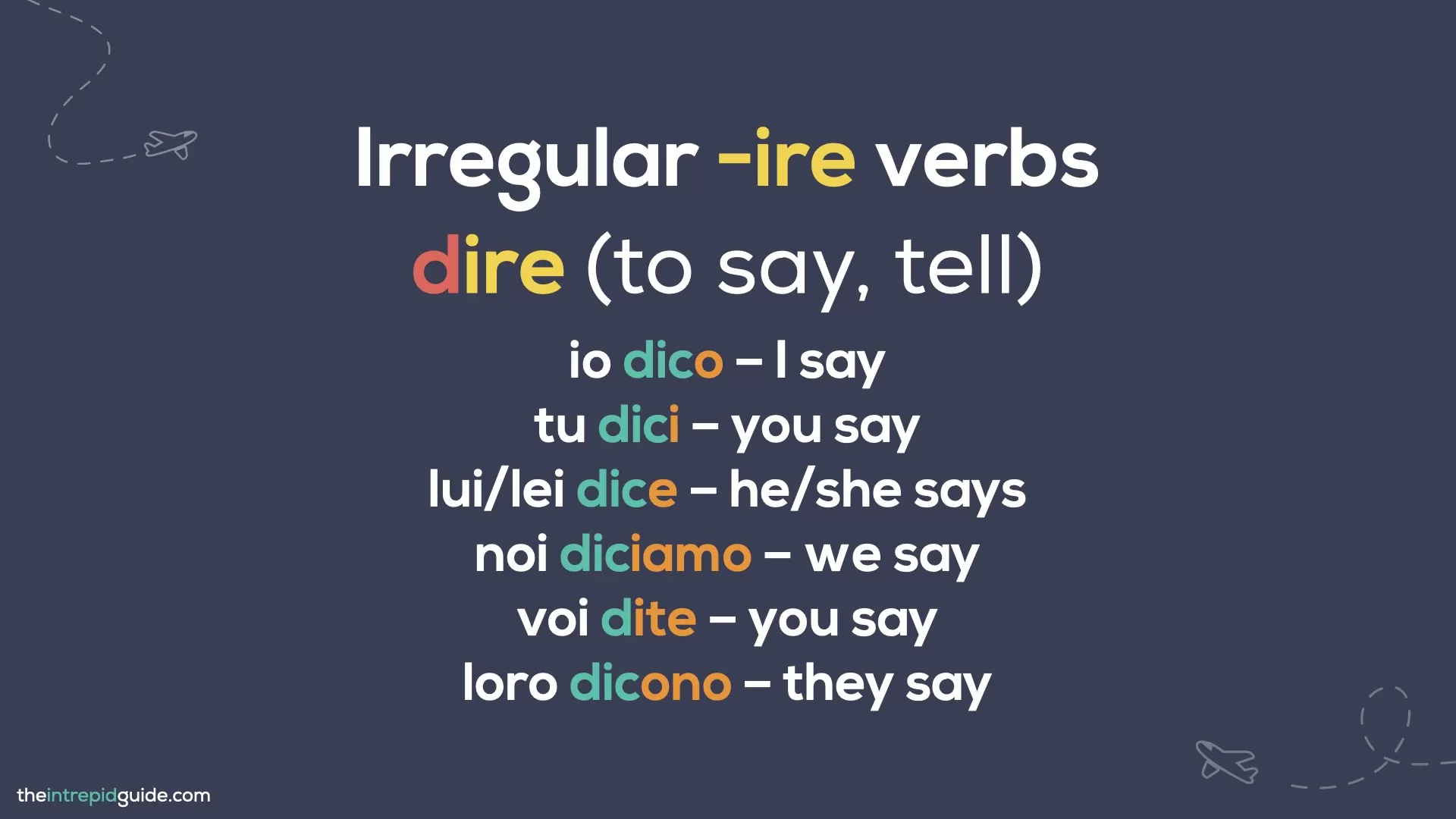
267 best images about Teaching Italian on Pinterest Spanish, Language
How many Italian irregular verbs in the present tense do you already know? With this verbs list you will learn 20 important Italian irregular verbs. 20 Italian irregular verbs in the present tense. LISTA VERBI PDF. Verbo. Traduzione. Presente. andare. to go. vado, vai, va, andiamo, andate, vanno. avere. to have.

Italian Irregular Verbs Italian words, Italian language learning
But now, the conjugation of Italian verbs isn't longer a problem, thanks to our free Italian verbs conjugator. An Olivetti Media Communication leading high quality production, containing more than 12,000 Italian verbs only considering the active form. With the reflexive verbs the total reaches more than 20,000 verbs.

More on Italian irregular verbs in present tense — Cuore italiano
Irregular verbs of the first conjugation. In the first conjugation there are four strongly irregular verbs that are very commonly used: andare , dare , fare and stare . For example, the present indicative of the verb dare (to give) is: io do, tu dai, lui dà (and not *io daro, *tu dari, *lui dara). The simple past is: io diedi (or detti ), tu.

11 Best Images of Subject Verb Find Worksheet Subject and Predicate
The conjugator allows you to conjugate any verb as long as it corresponds to an existing conjugation model. They may be imaginary verbs, they may contain spelling mistakes or be buzz verbs, not yet aggregated to our conjugation tables like "twittare", "taggare" or "svapare"! Conjugate verbs in English, French, Spanish, German, Italian, Hebrew.

Irregular Passato Prossimo Verbs A partial list Duolingo Italian
Italian irregular verbs. In Italian grammar verbs can be regular and irregular. In our previous post we explained how to conjugate the verbs belonging to three groups of verbs ending in ARE - ERE - IRE if you need to brush up on your Italian conjugation please see our essential guide to Italian verb conjugation for beginners.

italian conjugation chart Google Search Italian words, Learning
Some Italian verbs have irregular past participles, which do not follow these patterns and must be memorized. Examples of irregular past participles include essere (stato), avere (avuto), andare (andato), and fare (fatto). Understanding the appropriate ending for each verb group will make it easier to form compound tenses.

20 Italian Irregular Verbs You Need to Learn Daily Italian Words
The past participles of regular verbs are formed as follows: Past participles of -are verbs ending in -ato Camminare (to walk): camminato; Past participles of -ere verbs ending in -uto Sapere (to know): saputo; Past participles of -ire verbs ending in -ito Dormire (to sleep): dormito; The p ast participles of several verbs are irregular.

Irregular Verbs in Italian Italian Grammar Hacks [VIDEO]
About The St Louis Italian Language Program. The St Louis Italian Language Program consists of 12 week semesters in the Spring and Fall and a 6 week semester in the Summer. Classes are held online or in-person depending on the preference of the language instructor. Tuition for one semester (12 weeks) is $130 per person.

italian verb endings
Italian Irregular Verbs: An Introduction. From day one, Italian learners encounter the irregular present tense. For example, the irregular verb stare is used in the common greeting " Ciao, come stai?" (= Hello, how are you?), or other irregular verbs such as essere (= to be) and avere (= to have) appear in many useful sentences for beginners.

Italian Irregular Verbs I Will Teach You A Language
One of the most common difficulties for learners is learning and remembering irregular Italian verbs. The irregular verbs are those that do not follow the standard conjugation rules, such as the verbs ending in -are, -ere, or -ire. There are some in every language. The verbs to be, can, or may are common irregular verbs in English. There are.

Top 24 Most Important Verbs in Italian (Plus PDF CheatSheet & Quiz) (2022)
Verbs - and not only that - irregular verbs! The Italian language is infamous for having hundreds of irregular verbs. Some of them are irregular in the present tense, whereas others have irregular past participles. In this article, we'll be focusing only on Italian irregular verbs in the present tense…102 of them to be exact!This guide will:

100 Most Used Italian Verbs Poster
Italian Grammar: Imperative form of irregular verbs. Italian Exercises: Imperative Form. Italian Course Exercises - Unit 6: Verbi Irregolari - L'Imperativo - C'è/Ci sono. Italian Imperative Form Video Exercise

Italian irregular verbs Exercise
Italian irregular verbs - Modal verbs conjugation. Following, the most used Italian irregular verbs are modal verbs volere ( to want ), potere ( can ), dovere ( to have to / to need to / must) and sapere ( can / to be able to) which are mainly used paired with another main verb in the infinitive form. Here you have their conjugation:

Irregular Italian verbs
Those Irregular Verbs! How to Master Italian Verb Conjugations; 1. Give conjugated verbs needed context. 2. Write them on walls. Literally and seriously. 3. Say them out loud. Again and again. Common Issues with Italian Verb Conjugations; 1. The whole subject is covered too fast. 2. Conjugations are taught almost without context. 3. Mistakes.

The most popular Italian irregular verbs
Some verbs have unpredictable patterns and break the rules: these are the Italian irregular verbs. Italian irregular verbs break all the rules You probably already know that the indicativo presente (present tense) conjugation for the pronoun io adds the ending -o to the root of the verb, or stem (see note for more info).

How to Conjugate Italian Verbs in 3 Simple Steps [Italian for Beginners
Irregular -are Verbs.. Italian has only 4 irregular -are verbs (click for lessons): 1. andare: to go: 2. dare: to give: 3. fare: to do, to make: 4. stare: to stay, to be: Though these four verbs don't share a conjugation pattern, it's helpful to look at them side by side because there are many similarities.